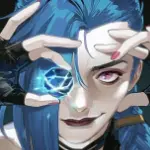I used to be one of those who romanticize vampires to an embarrassing degree. Brooding creatures of the night, immortal and eternally young, lurking in Gothic castles or smoky underground clubs, reciting poetry while nursing an existential crisis. The kind of vampire who makes you consider, just for a second, if giving up sunlight and garlic might actually be worth it.
Then I watched Nosferatu (2024), and suddenly, my vampire fantasy shriveled up like a corpse left in the sun. And I’m not saying this to knock the film—far from it.
This new take on the 1922 silent classic is a meticulous exercise in atmospheric horror, visually stunning in that perfectly calibrated, tortured art-house style that the director does best. And by stripping away the seductive veneer of modern vampire mythology, Nosferatu reminded me of something I had conveniently ignored: vampires were never supposed to be sexy. They were supposed to be terrifying.
This realization hit me about halfway through the film, right around the time I found myself recoiling at Count Orlok’s grotesque visage. Gone is the Byronic charm of Lestat in Interview with the Vampire, the sparkly melodrama of Twilight, or even the dark allure of Dracula in Bram Stoker. Instead, The film delivers a Nosferatu that is closer to an ancient crypt-dweller, a walking corpse with sunken eyes, claw-like hands, and a face that looks like it belongs in a plague painting. He is, in every sense, a monster. And that, I must admit, is kind of brilliant.
It wasn’t until the director's name rolled in the credits that I realized I had already seen two of Robert Eggers’ films—The Witch (2015) and The Lighthouse (2019)—and actually liked them. He has a very specific way of building historical horror, marked by an obsessive adherence to period accuracy, making his films feel like unearthed nightmares from another century. Nosferatu is no different. The cinematography is exquisite, each frame drenched in chiaroscuro lighting, the shadows alive with menace. Watching it feels more like stepping into a cursed oil painting than consuming a modern horror film.

But while Nosferatu excels in visual storytelling, it doesn’t bring much fresh takes to the table in terms of narrative. The plot remains largely faithful to the original—a young man, Jonathan Harker, travels to meet the mysterious Count, only to inadvertently unleash a plague of darkness upon his hometown. The characters are drawn with slightly more depth than their silent-film counterparts, but none of them feel particularly revelatory. Even the added layers to Ellen’s character (the female lead) seem more like a surface-level attempt to modernize a classic damsel-in-distress trope rather than a fully realized reinvention.
I think, for me, this film’s greatest impact was not in its scares but in the way it forced me to reevaluate my own perception of vampires. Under the influence of Anne Rice and Hollywood that are obsessive with making monsters attractive, we've forgot that vampires were originally symbols of decay, plague, and death. Eggers brings that back with full force.
His Nosferatu is not a tragic prince; he’s an inhuman predator. His nails are filthy, his breath reeks of rot, his presence is not seductive but repulsive. Watching him reminded me of how terrifying the idea of a real vampire would actually be. Imagine something that old, that unnatural, creeping through your window at night, not to whisper poetry in your ear, but to suck the life out of you like a grotesque, overgrown tick.

The film makes you question why we ever romanticized these creatures in the first place. Was it a way to soften our fear of death? A subconscious desire to control the uncontrollable? Or was it just Hollywood’s tendency to turn everything into an excuse for a love story? Nosferatu doesn’t answer these questions, but it certainly makes you think about them. And maybe that’s the best thing about it.
Nosferatu killed my vampire romance, absolutely. But it has also given me a newfound respect for the horror at the heart of the genre. After all, the last vampire film I saw, Salem's Lot (2024), was so poorly executed that it honestly made me laugh.
Robert Eggers has crafted a film that is visually breathtaking, atmospherically suffocating, and thematically faithful to the roots of the vampire myth. Maybe It’s not groundbreaking or has not reshaped the genre, but it does remind us what is it that makes vampire terrifying in the first place. If you’re expecting a gothic romance, you’ll be sorely disappointed. If you’re expecting a genuinely unsettling descent into old-school horror, you’ll find exactly what you’re looking for. As for me, I’ll probably never look at a vampire the same way again. And maybe that’s for the best.















 Join the conversation and share your thoughts!
Join the conversation and share your thoughts!





































